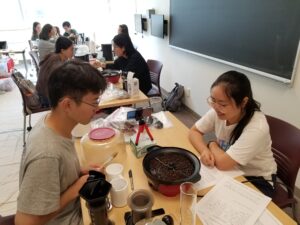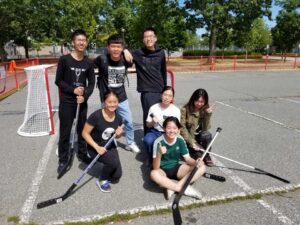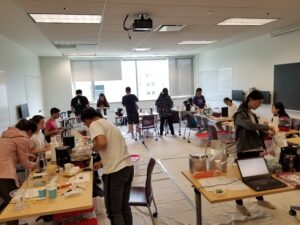UBC Engineering’s world-class faculty and researchers are committed to an instructional approach that is varied, experiential and engaging. This multi-faceted approach makes UBC engineers stand apart, on a firm foundation from which to build an exciting and rewarding career.
What you might expect/course format
While each course varies based on the subject and instructor, our VSP Packages feature:
- Interactive in person lectures
- Hands-on labs, fun and practical demonstrations
- Team-based assignments
- Fun social activities
- Experience with industry standard software
July 2026 Course Packages
The Power of Chemistry: an Introduction to Matter, Energy, and Chemical Engineering
This is a foundational course covering essential topics such as material properties, material and energy balances, basic thermodynamics, fluid mechanics, and chemical reaction engineering. Students will explore how these principles are applied in industries like energy technologies, pharmaceuticals, environmental engineering, polymers, and more. The course also introduces examples of evolving advancements in chemical engineering, such as sustainable process engineering, advanced materials, energy storage and conversion (batteries and hydrogen economy), the circular economy, and the use of AI/machine learning in process control and manufacturing. Through problem-solving exercises and case studies, the course emphasizes the design and optimization of efficient, sustainable processes. By the end of the course, students will have a foundational understanding of some of the core chemical engineering concepts, preparing them for advanced studies and real-world applications. Hands-on laboratory experiments will illustrate the key concepts covered in the course.
The Power of Biology: an Introduction to Biological Engineering
This course provides an introduction to biological engineering. It includes introductions to the fundamental concepts of microbiology, cell biology, genetic engineering, and bioprocessing, before explore more specialized topics like the production of biofuels, novel foods and pharmaceuticals, biomaterials, and recent advances in biotechnology. Humans are faced with new ethical quandaries with these astounding technological advances. Hence, the ethics and social aspects of bioengineering are also discussed. Participants will have the opportunity to apply theory into practice through lab experiments, including the genetic engineering of bacteria.
Prerequisites: No prerequisites
For more information
For VSP Chemical and Biological Engineering-specific questions, email undergrad@chbe.ubc.ca.
Student testimonials
– Qiuyu Chen, VSP Applied Science Student, 2019



